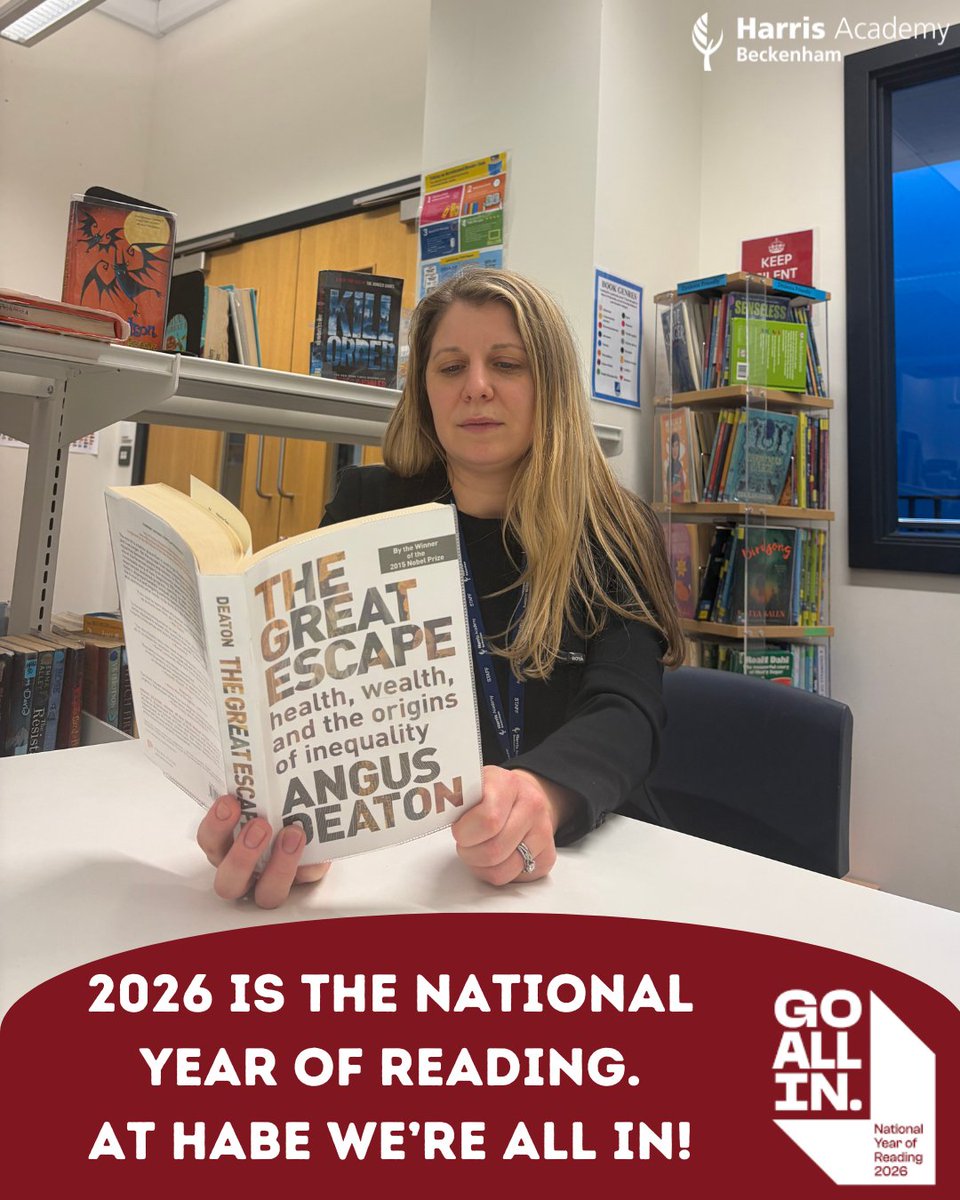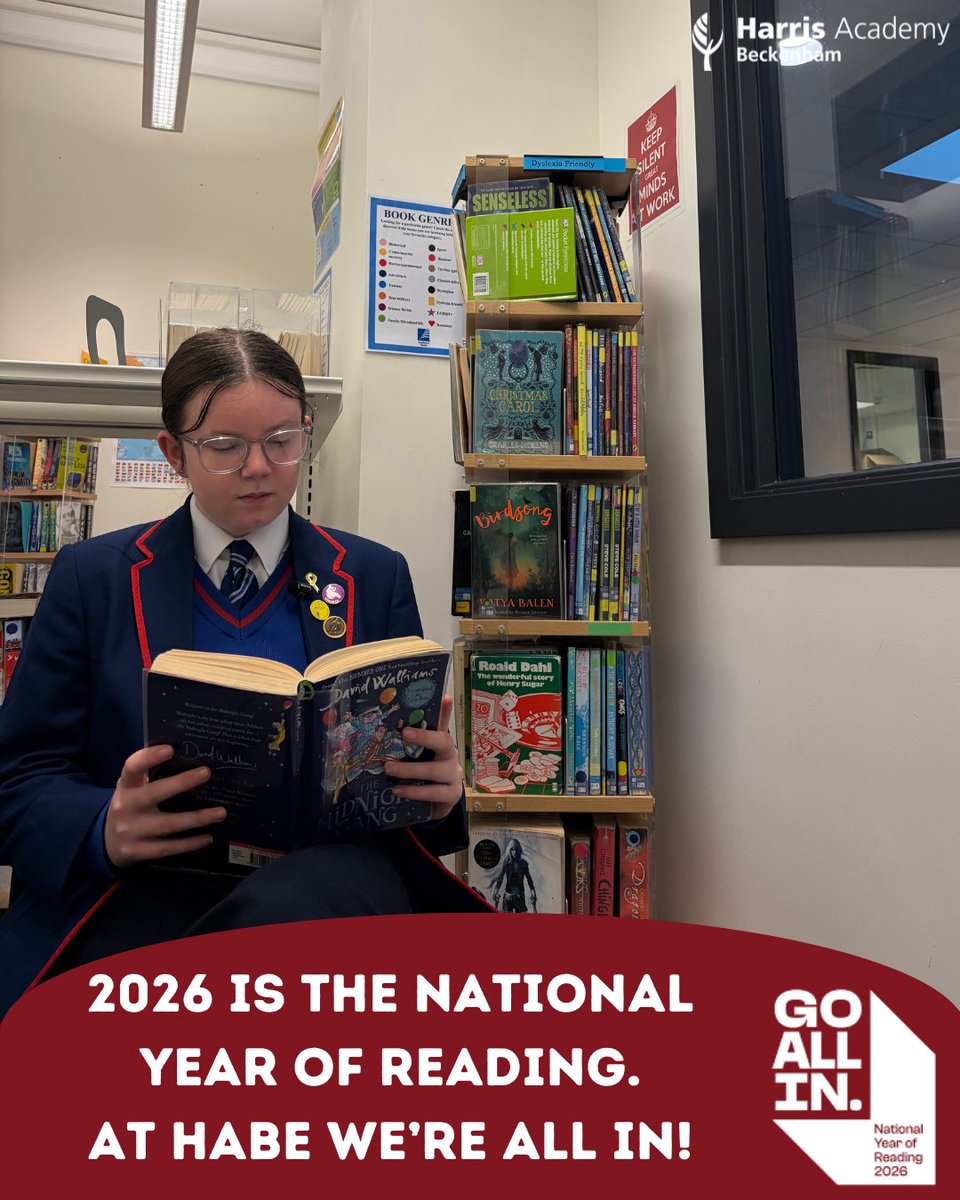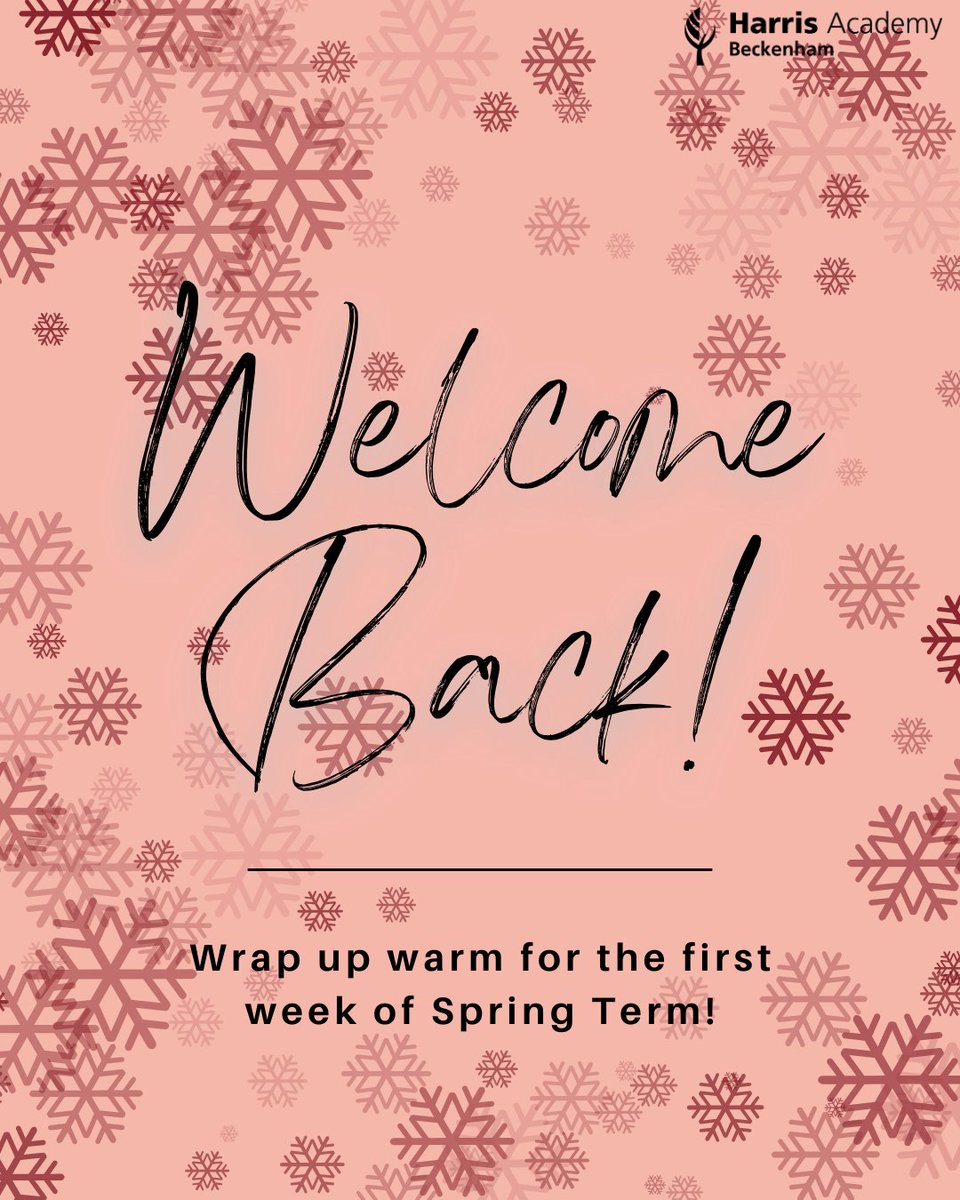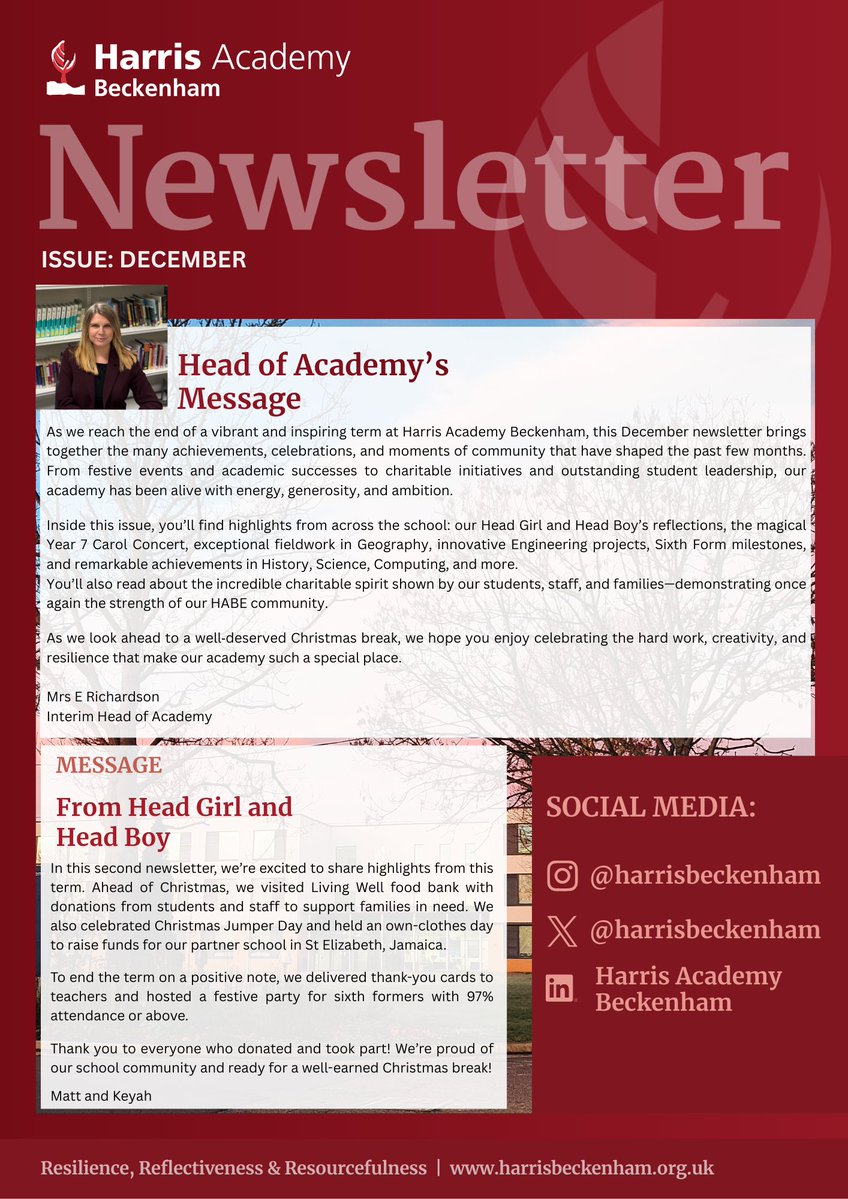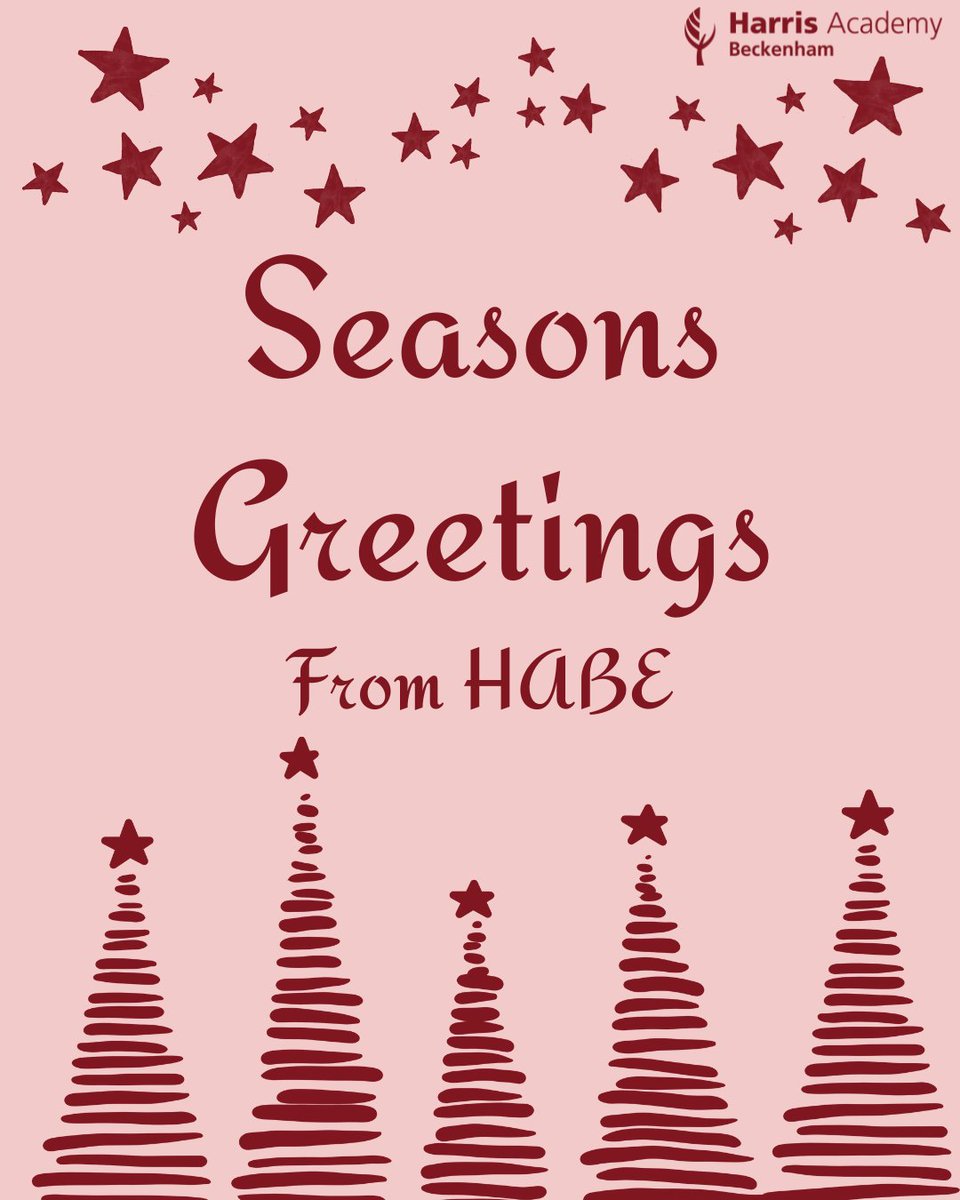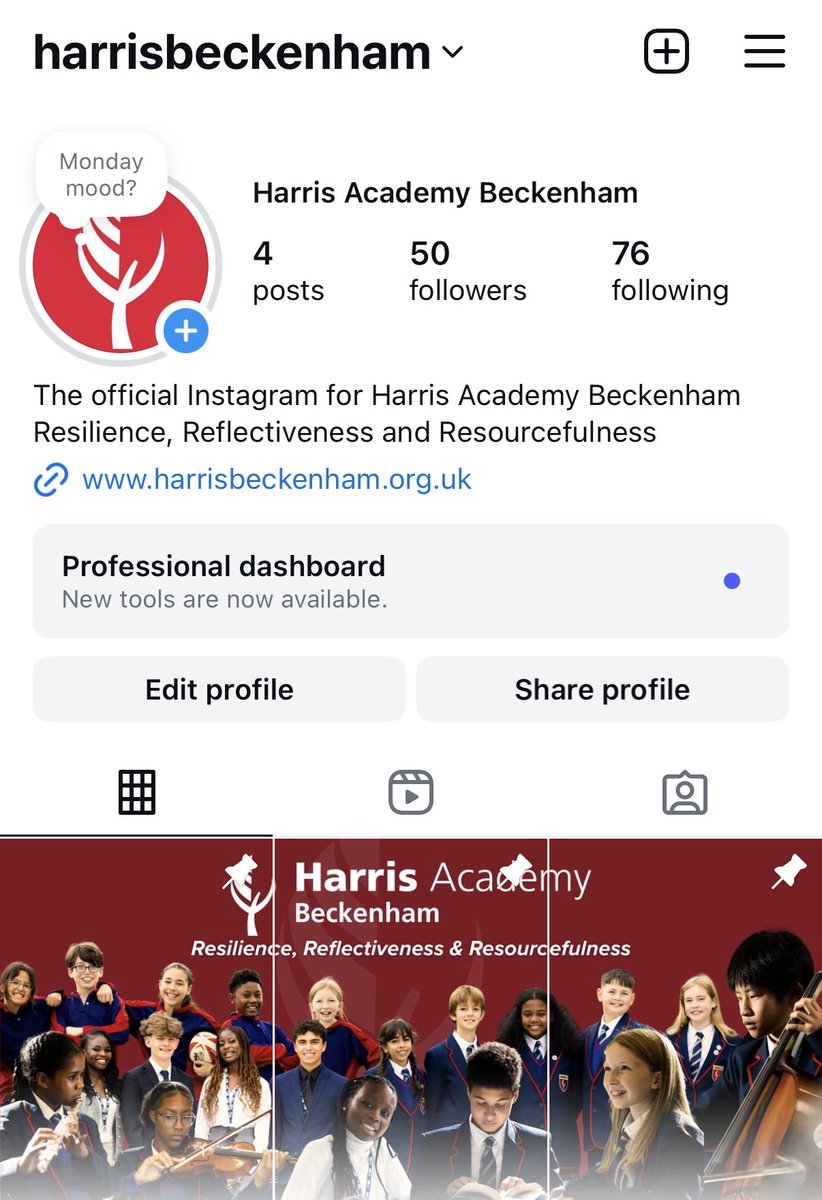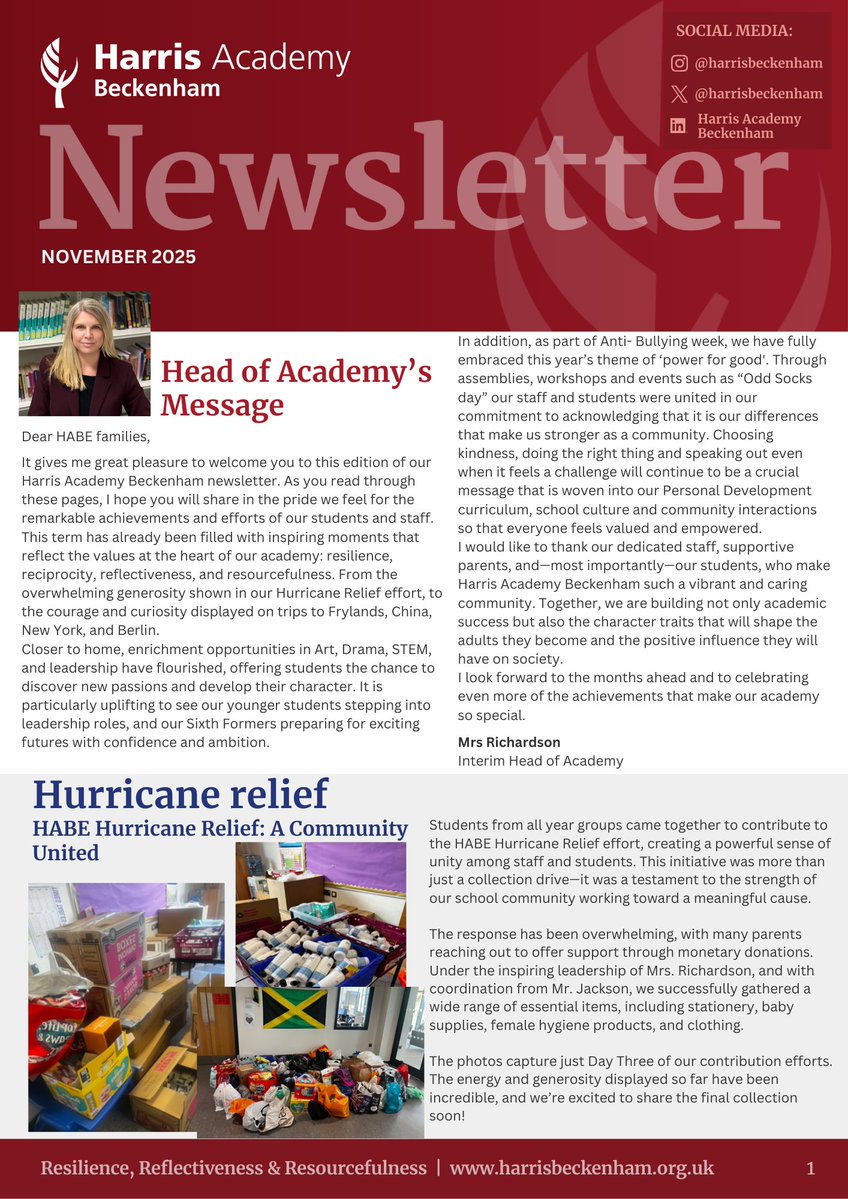Home Learning
At Harris Beckenham, homework and independent learning is an important opportunity to focus on recall and retrieval practice to secure the knowledge gained during the classroom experience and ensure that knowledge is revisited over time for the purpose of moving into the long-term memory.
You will be asked to self-quiz in preparation for lesson quizzes/tests, keywords and definition tests, respond to multiple-choice questions, or complete problems or questions to consolidate material learned previously.
Every half term, we craft comprehensive homework booklets, aptly termed 'Knowledge Organisers,' for each year. These invaluable resources delineate the homework expectations for the entire half term. A copy of these Knowledge Organisers is given to every student, if lost, they can be downloaded from our website.
In addition, you will receive a Self-Quizzing Booklet - an exercise book with lined pages. This is where you will complete your self- quizzing. Both the self-quizzing booklet and the knowledge organiser booklet need to be brought to school every day.
What types of homework will I receive?
There are four types of homework:
- Online homework: Homework is set online for mathematics and science and English via an App.
- Self-quizzing homework: You will also receive self-quizzing homework once a week from each subject. This ensures that you are memorising and recalling the powerful knowledge that they need to be successful.
- Written, paper homework: Some subjects will set a termly written task to be completed in your subject exercise book.
Knowledge Organisers - Spring 1 Key Stage 3
Click on the links below to download the Spring 1 2026 Key Stage 3 Knowledge Organisers:
What is Self-Quizzing?
Self-Quizzing, an integral practice, entails using the knowledge organiser as a tool to internalise crucial information and engrave it into long-term memory. Equipped with the 'Fetch, Flip, Check, and Repeat' method, students will be guided in the process of self-quizzing the content from their knowledge organisers. Self-quizzing is a form of retrieval practice. It is a self-regulated study strategy that requires students to be able to form their own questions that test the knowledge they have gained from their lessons and studying their knowledge organisers. Self-quizzing is the most effective revision strategy to support long term knowledge retention.
How much Self-Quizzing should I do?
If you are in KS3, you should self-quiz on every subject for 20 minutes a week. If you are in KS4, you should self-quiz on every subject for 30 minutes a week. Your teacher will guide you as to which section of the knowledge organiser they would like you to focus on. You have one week to complete all of your self-quizzing for all of your subjects. You must complete one page of your self-quizzing exercise book for each subject. Self-quizzing books will be checked weekly in each of your subjects.
How to present your self-quizzing book
- Write your name and tutor group on your Knowledge Organiser Folder (front Cover).
- Write your name, class and tutor’s name on the front cover of your Knowledge Organiser booket.
- Each evening, write and underline the date, the subject and the section you are self quizzing that evening in your self quizzing book. For example, "18 November 2021 Science Page 10 Section: Atoms"
- Use blue or black pen.
- Use a green or red pen for corrections.
- Use a new page for each subject. You must complete a full page of self-quizzing notes for each subject.
- There will be rewards for students going above and beyond with their self-quizzing homeworks!!
- Keep your books neat and organised.
How to Self-Quiz
Get together all your resources (listed below) and find a quiet space to work. You can always use the homework club in the library after school until 4.30pm.
You will need:
- Knowledge Organiser
- Self-quizzing book
- Writing pen (black/blue)
- Checking pen (any other colour, ideally green or red)
- A piece of paper to cover your work
- Ruler

Method One – Look-Cover-Write-Check
- Select the section in your knowledge organiser you want to self-quiz.
- Look at the first line in that section of your knowledge organiser.
- Cover up the line in your knowledge organiser.
- Write the information from the line from memory into your book.
- Uncover the line in your knowledge organiser.
- Check if it’s correct. Green pen any corrections.
- Repeat.
Method Two: Turn what is in the knowledge organiser into a question
- Select the line in your knowledge organiser you want to self quiz.
- Rephrase the information as a question and write it in your practice book . You could use the following words at the start: What, State, Define, Who, When.
- Cover up the line in your knowledge organiser.
- Answer the question you’ve written.
- Uncover the line in your organiser, and check if it’s correct. Green pen any corrections.
- Repeat.
Method Three – Blank out sections to create your own gap fill
- Select the line in your knowledge organiser you want to self quiz.
- Write the line out in your book but leave out some of the key terms, by putting a blank space.
- Cover up the line in your knowledge organiser.
- Fill in the key terms that you have left blank.
- Uncover the line in your organiser, and check if it’s correct. Green pen any corrections.
- Repeat.
Revision Skills
- https://youtu.be/ocoHbs_ln7U?si=nOrSVbqcmKLFkyhZ
- https://youtu.be/WoSElAd5rgA?si=-6RhwWyotL_2FGOy
- https://youtu.be/2bYdkv04_so?si=LuN2Z_CepzLXa4wf
- https://youtu.be/t-AxS9KC48o?si=bwsMlkAjO4b9dw0G
- https://youtu.be/u1vST3bhVXs?si=e7WyGMfzYhh9X8c6
- https://youtu.be/n_wnWn4o8i4?si=jfuR-OltqfsHGrH7
- https://youtu.be/kGQGFozg3i0?si=O0_mhgkQk29CtG00
- https://youtu.be/VGkdFS7ktJM?si=gJx17aC1__OmPfl4
- https://youtu.be/89Izgp5RjW4?si=U83LEzUMPorK_ndk
